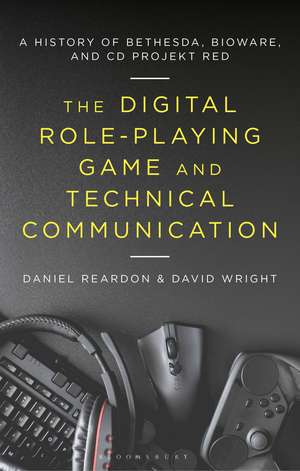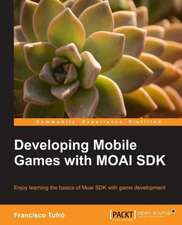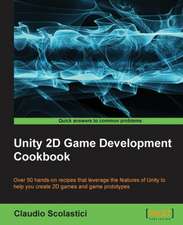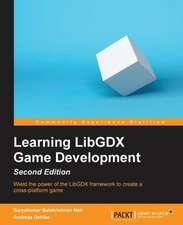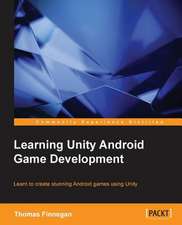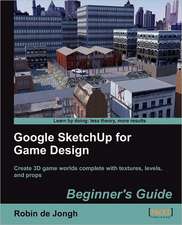The Digital Role-Playing Game and Technical Communication: A History of Bethesda, BioWare, and CD Projekt Red
Autor Daniel Reardon, David Wrighten Limba Engleză Hardback – 19 mai 2021
| Toate formatele și edițiile | Preț | Express |
|---|---|---|
| Paperback (1) | 170.74 lei 6-8 săpt. | |
| Bloomsbury Publishing – 16 noi 2022 | 170.74 lei 6-8 săpt. | |
| Hardback (1) | 650.75 lei 6-8 săpt. | |
| Bloomsbury Publishing – 19 mai 2021 | 650.75 lei 6-8 săpt. |
Preț: 650.75 lei
Preț vechi: 1011.49 lei
-36% Nou
Puncte Express: 976
Preț estimativ în valută:
124.53€ • 128.66$ • 103.59£
124.53€ • 128.66$ • 103.59£
Carte tipărită la comandă
Livrare economică 19 martie-02 aprilie
Preluare comenzi: 021 569.72.76
Specificații
ISBN-13: 9781501352546
ISBN-10: 1501352547
Pagini: 344
Ilustrații: 63 bw illus
Dimensiuni: 152 x 229 x 27 mm
Greutate: 0.62 kg
Editura: Bloomsbury Publishing
Colecția Bloomsbury Academic
Locul publicării:New York, United States
ISBN-10: 1501352547
Pagini: 344
Ilustrații: 63 bw illus
Dimensiuni: 152 x 229 x 27 mm
Greutate: 0.62 kg
Editura: Bloomsbury Publishing
Colecția Bloomsbury Academic
Locul publicării:New York, United States
Caracteristici
Illuminates the history of three companies that changed the way technical content and social media are used to create and promote digital games
Notă biografică
DANIEL REARDON currently serves as Interim Vice Provost of Undergraduate Education at Missouri University of Science and Technology, USA, where he also is on the faculty in the Department of English & Technical Communication. He teaches Science Fiction, Fantasy Literature, technical communication, and courses in the teaching of reading and writing. He has published articles about digital games, higher education administration, and the teaching of reading and writing.DAVID WRIGHT is the Professor of Technical Communication at Missouri University of Science and Technology, USA. His teaching and research interests include technology diffusion, digital communication, game studies, and usability studies. He has published articles on technical communication and digital communication.
Cuprins
List of IllustrationsForeword by Adam CrowleyIntroduction: RPGs and the Explosion of Technical Content1: Birth of the DRPG2: New Century, New Technologies, New Challenges3: Crowdsourcing -- The Game Changer4: At the Top of Their Games5: A Cocreative Game World, for Better or for Worse6: The Social Media Imperium7: Bigger, More, Better8: The Wheels Fall OffNotesIndex
Recenzii
A timely and meticulously researched analysis of major game studios, important and influential video games, and emerging areas of practice and opportunity for technical communication. Written in an accessible and engaging style, the book is highly recommended for those interested in games and writing as well as those considering the future of our profession.
Reardon and Wright offer a comprehensive, compelling, and complex take on 3 love stories between digital role-playing game development companies and the fan-based communities they wooed with varying degrees of effectiveness. Technical Communication plays a prominent role in each of these love stories as the primary means by which developers and fans influenced one another in remarkably expansive co-creative game worlds, for better and for worse.
Reardon and Wright offer a comprehensive, compelling, and complex take on 3 love stories between digital role-playing game development companies and the fan-based communities they wooed with varying degrees of effectiveness. Technical Communication plays a prominent role in each of these love stories as the primary means by which developers and fans influenced one another in remarkably expansive co-creative game worlds, for better and for worse.
